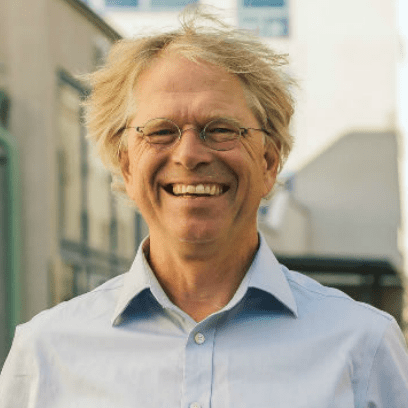Mistra Geopolitics scientists were quoted in 425 media articles published by international and Swedish news outlets during 2021. This media exposure is the highest since the programme started in 2018, reaching around 710 million potential news readers, listeners or viewers.
A growing interest from international media
Media interviews with key researchers within Mistra Geopolitics resulted in 425 media articles published by Swedish and international news outlets during last year. This amounts to a total media exposure of approximately 710 million potential news readers/listeners or viewers.
Top news sources included the Swedish Radio (17 articles), MSN Sweden (16 articles) and one of Swedens largest daily newspapers, Dagens Nyheter (13 articles). Top countries included Sweden, Norway and the United States. Some of the media articles were replicated over 30 times in local and national Swedish media outlets. Three of the top media articles published in the Financial Times, SVT and Dagens Nyheter are presented below.

Food prices remain high into 2022 on shortages due to extreme weather
“Crop damage linked to climate change could lead to stockpiling or trade restrictions, experts warn,” reported the Financial Times in January 2022. The story was based on a report by researchers from Mistra Geopolitics and SEI, which noted that extreme weather events in 2021 had triggered spikes in the prices of agricultural commodities, which remained elevated into 2022, as the unusual conditions that damaged crops resulted in ongoing shortages.
Scientists warned that these conditions would become more frequent and intense as climate change accelerated. In their report, the researchers pointed out that climate change would “dramatically impact agricultural production all around the globe” and would reduce crop yields in certain areas.
“This is a big gap in our planning for climate adaptation,” said Magnus Benzie, SEI Research Fellow and one of the report’s authors. “Lower yields and higher prices could cause food insecurity in less resilient, import-dependent countries, and drive-up costs for consumers around the world.”
“How countries reacted to extreme events and shortages – whether they stockpiled or imposed trade restrictions, for example – could exacerbate crises,” he added. Concurrent crises, such as successive or simultaneous droughts, were also likely to intensify shortages, and were expected to become more common as the world warmed up, said Benzie.
The authors of the report, “Climate change, trade, and global food security”, contributed to media exposure in the Financial Times, Daily World Live, Biz News Post, Trend Fool, Business Mayor, Business Fast, SVT, Dagens Nyheter, Swedish Radio, MSN news, Helsingborgs Dagblad and Sydsvenskan, with a combined total reach of 22 million potential readers.
Published by the Financial Times in January 2022:
A big step for the climate negotiations
In an interview with the Swedish newspaper Dagens Nyheter at COP26 in Glasgow, Björn-Ola Linnér, Programme Director of Mistra Geopolitics and Professor at Linköping University said:
“A small step for humanity, but a big step for the climate negotiations, with an emphasis on the negotiations. The Glasgow meeting exceeds my expectations and is a completely new chapter in the Paris Agreement,” he added.
Professor Linnér emphasized that there was still a long way to go to achieve climate goals and words now had to be translated into action. And island nations and other vulnerable countries might be disappointed that no agreement had been reached on a system of financing for providing compensation for damage caused by climate change.
However, the fact that participating countries would now update their climate goals every year from 2022 and that fossil fuels were included in the text of the agreement were two main reasons why COP26 could be considered a successful climate meeting.
“Countries must now move from word to deed, but COP26 has created the political conditions needed to do so,” Professor Linnér concluded.
Interviews with Björn-Ola Linnér on COP26 were featured in Dagens Nyheter, SVT, the Swedish Radio, Aftonbladet, Expressen, Svenska Dagbladet, Göteborgs-Posten, Sveriges Natur, Upsala Nya Tidning, MSN Sverige, Head Topics and around 10 Norwegian news outlets, potentially reaching 50 million people.
Published by Dagens Nyheter in November 2021:
How ambitious is China’s five-year plan on climate targets?
Xi Jinping, President of China, has previously announced that China intends to become carbon neutral by 2060. During the National People’s Congress in Beijing in 2021, a key agenda point was the adoption of the 14th Five-Year Plan for Social Economic Development, 2021–2025, which lays the foundation for social and economic development in China in the coming years.
At a press briefing in February, Mistra Geopolitics scientist Karl Hallding and SEI scientist Guoyi Han highlighted key targets to watch from a climate perspective in connection with the adoption of China’s five-year plan:
- Will China add absolute (i.e. cap) targets for its energy use and carbon emissions in addition to the relative intensity targets?
- Will there be specific stipulations on coal use and investment?
- How will the renewable energy targets be set to strengthen both capacity and generation?
“The 2060 net zero target risks diffusing attention from the more important 2030 targets,” Dr Hallding said. “Moreover, it is not only a matter of China’s emissions. China has emerged to become by far the world’s largest international investor in new coal power plants around the world in the past decade. These investments are currently locking developing countries in with coal power-based energy systems for generations to come.”
The press briefing generated interest from many media outlets, including SVT’s Morning Studio. Dr Hallding spoke to SVT’s climate correspondent Erika Bjerström about China’s ability to reach its net zero target by 2060.
Other outlets covering the briefing included SVT Utrikesbyrån, “Kungen av kol”, Aftonbladet, Expressen, the Swedish Radio, News 55 and the Swedish News Agency TT, reaching approximately 45 million potential readers and viewers.
Published by SVT’s Morning Studio, SVT Utrikesbyrån, and the Swedish News Agency, TT in February 2021:
This news text is a highlight from the Mistra Geopolitics annual report 2021 written by Ylva Rylander.
Featured: Magnus Benzie, Karl Hallding, Björn-Ola Linnér and Ylva Rylander

Magnus Benzie

Professor Björn-Ola Linnér

Karl Hallding




